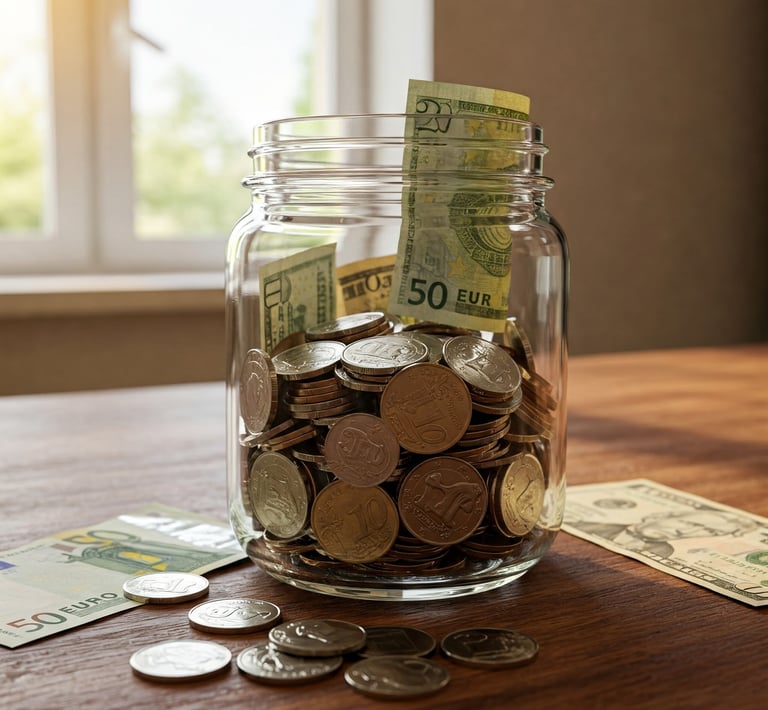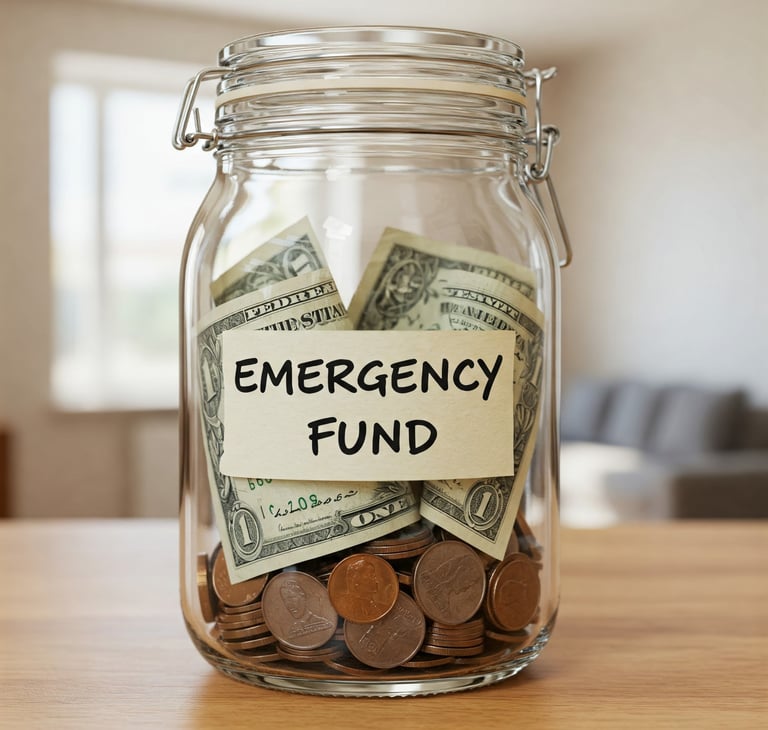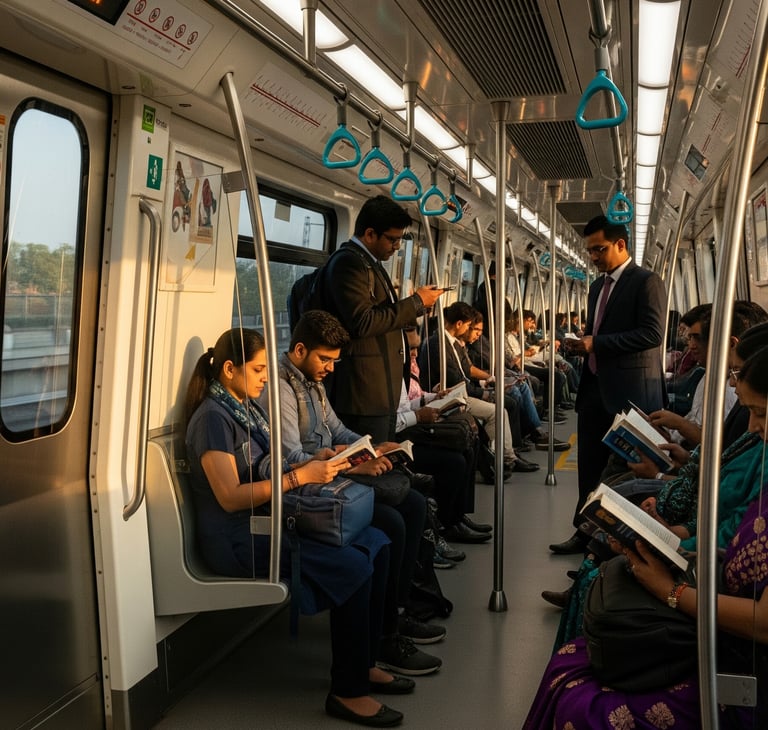

Saving money is essential for your overall well-being and financial stability. It provides a safety net for emergencies like unexpected medical expenses or job loss, allowing you to manage these challenges without accruing debt. Savings also support future goals, such as home ownership, education funding, or travel plans, with timely savings increasing your chances of success. Furthermore, saving fosters financial independence, enabling you to make decisions apart from your paycheck. This security eliminates stress and anxiety related to financial concerns, allowing you to focus on other aspects of life. Savings provide investment opportunities, enabling you to take calculated risks like investing in stocks or starting a business without the pressure of immediate returns. Starting to save early benefits from compound interest, leading to significant wealth accumulation over time. Having financial resources offers greater flexibility in life choices, such as career changes or taking time off, without the stress of immediate financial consequences.
Saving
Top 10 Best Ways To Save Money
Set a Budget


A budget helps you understand where your money is going by giving you an overview of your income and expenses. Due to this awareness, you can identify your spending habits and places for reduction. By making a budget, you can set specific financial goals, like saving for a trip or collecting emergency funds. By doing this, you can better prioritize your spending and make sure that your funds are going toward your top priorities.
By setting limitations on spending for different categories and prioritizing the fulfillment of basic needs, a budget helps you prevent overspending. It also helps you manage your debt by allowing you to schedule payments and stay clear of unnecessary borrowing. You can pay off your current debts faster by controlling your spending.
Setting up funds for emergencies through a budget gives you financial stability in the event of unexpected expenses. Being prepared allows for less financial concern and lessens dependency on loans. A well-structured budget encourages economic habits that support stability and peace of mind over the long run and allows you to make wise choices for a safe future.
Eliminate Debt


The money that was previously used for interest payments and monthly expenses can be transferred to savings after the debt is paid off. This change allows you to invest in opportunities that can improve your financial health, save for plans, or accumulate an emergency fund. It feels like you're making more money when you're debt-free because you have more money to spend as you like.
Both mental and physical health can be negatively impacted by the substantial anxiety and stress that come with having debt. By paying off debt, you can stop worrying about monitoring outstanding balances and making payments. You can focus on other important aspects of your life without having to worry about money, thanks to this emotional release, which can also increase your general well-being and quality of life.
By lowering your risk of unexpected events like losing your job or experiencing a medical emergency, being debt-free improves your financial stability. Your budget is more flexible when you aren't bound by monthly loan payments, which allows you to better plan and get ready for unexpected expenses. Furthermore, paying off debts can raise your credit score, which can lead to better financial opportunities like reduced loan interest rates and better terms on next loan applications. Reducing debt improves your overall financial security, lowers stress, and allows you to save more of your income. As a result, there is a stronger basis for reaching long-term financial objectives and leading a more satisfying life.
Look for Better Deals


You can get the same goods or services for less money by looking for better offers. You can make sure you're receiving the best deal by utilizing price comparison websites or checking costs across several merchants. Over time, this technique can result in significant savings, particularly on major purchases or ongoing expenses.
Seasonal sales, clearance events, and special promotions are offered by many shops, which can result in significant savings. You can maximize your savings potential by scheduling your purchases around sales events if you keep up with these changes. Subscribing to newsletters or following brands on social media can provide access to special discounts and temporary promotions.
Actively looking for better offers encourages a responsible spending mindset. It encourages you to rethink whether you really need a product at its current price and to think carefully before making a purchase. This behavior can help prevent impulse buying and lead to more mindful financial decisions, ultimately contributing to improved budgeting and increased savings.
Cut Unnecessary Expenses


You can put those funds into savings by identifying and cutting off non-essential spending. This could be investing in your future, saving for a trip, or putting money aside for an emergency fund. You can easily boost the amount of money available for your financial goals by reducing unnecessary expenditures.
You can get more financial control by keeping track of your expenditures and reducing wasteful expenses. It allows you to make well-informed spending choices by letting you understand where your money is going. This knowledge promotes more prudent financial practices and helps avoid overspending.
Living with unnecessary costs can lead to anxiety and financial hardship. You can reduce some of that tension by eliminating these expenses. Having a budget that prioritizes savings and necessary expenses can give you financial security and peace of mind.
Cutting unnecessary expenses allows for funds to be allocated to other priorities or unexpected expenses. This increased flexibility allows you to adapt to changing financial circumstances without incurring debt or taking out loans.
Create an Emergency Fund


An emergency fund serves as a safety net for unexpected expenses such as vital home repairs, medical issues, or job loss. You can deal with these situations without depending on high-interest loans if you have savings. By providing stability and peace of mind, this financial cushion allows you to overcome challenges without compromising your future goals.
Many people use credit cards or loans to pay for unexpected costs, which can result in debt accumulation and high interest payments. You may handle these costs without accumulating debt by keeping an emergency reserve, safeguarding your financial stability, and minimizing the burden of debt.
Creating an emergency fund gives you a better understanding of your financial priorities and helps you form better saving habits. You're most probably going to get more disciplined about budgeting and saving for other objectives, like retirement or vacations, as you put money aside for emergencies.
It's common advice from financial experts to have three to six months' worth of living expenses in your emergency fund. Because it guarantees that you can fulfill your responsibilities even in difficult circumstances, this degree of preparation not only helps in urgent crises but also promotes your long-term financial stability.
Make Saving a Habit


Developing a habit of saving regularly gives you a safety net. You won't need to use credit cards or loans to cover unanticipated expenses like auto maintenance or medical emergencies, thanks to this financial cushion. Constantly putting money aside gives you stability and peace of mind by ensuring you have money for unexpected expenses.
Prioritizing savings helps you become more frugal with your money. You become more conscious of your spending patterns and can spot places where you may be overspending as you monitor your savings objectives. This knowledge helps you focus on what is important and makes you make wiser purchases, which ultimately increases savings potential.
Maintaining a regular savings schedule helps you save for future investments and needs, which improves long-term financial health. Your money has more time to increase through interest or investment returns if you start saving early. Your wealth can grow dramatically over time thanks to this compounding effect, boosting your financial independence.
Use Public Transportation


Owning and maintaining a car is typically far more expensive than using public transportation. Fuel, insurance, maintenance, and parking are just a few of the many costs that can mount up quickly. Reducing these costs can result in significant financial savings for many households that rely on public transportation.
You can save a lot of money on fuel by taking public transportation because petrol and diesel prices are always changing. Since buses and trains often use less fuel than private vehicles, you can travel for significantly less money. It's a more eco-friendly choice.
In crowded cities, parking can be difficult to find and usually costs a lot of money. You can save money and energy by taking public transportation instead of searching for parking.
When you use public transportation, your car will be less worn out if you own one. Over time, this can result in lower maintenance expenses because you'll require fewer tire replacements, oil changes, and other repairs.
Avoid Luxury Brands


Luxury brands often price their products based on reputation rather than actual quality. You can save money without sacrificing style or utility by choosing non-luxury alternatives, which often offer similar or even higher quality products at a lower price.
While luxury goods are often marketed as superior in quality, many buyers find this is not always true. Expensive products sometimes don't last as long as cheaper ones. You can save money and still receive long-lasting products by selecting reasonably priced brands that are well-known for their quality.
Due to the attraction of brand status, luxury shopping may lead to impulsive purchases. You might find it simpler to control these cravings and make wiser purchases if you stay away from expensive items. This method allows you to prioritize saving over spending and maintain a budget.
Avoiding luxury brands allows you to put your money toward investments, savings, or lifelong experiences that bring value. You can concentrate on creating a more secure financial future rather than spending money on things that could only provide short-term satisfaction.
Use Cash More


Paying using cash makes it much easier to stick to your budget. Handling physical money gives you a clear, immediate sense of how much you have left to spend, which naturally helps you control your expenses. This tangible approach to managing your finances reduces the risk of overspending and encourages more thoughtful spending decisions.
When you use cash, each purchase feels more real and significant compared to swiping a card or making a digital payment. This awareness often helps you to pause and think twice before making impulsive buys, as parting with cash feels more substantial than simply tapping a card or clicking online.
Adopting a cash-based budgeting system also allows you to set aside a fixed amount for savings each month. By physically separating your savings from your spending money, you can easily track your progress and stay motivated to reach your financial goals. This method not only helps you manage your day-to-day spending but also builds healthy saving habits over time.
Be Healthy


Living a healthy lifestyle can save you a significant amount of money in both the short and long term. By eating nutritious foods, exercising regularly, and avoiding harmful habits like smoking or excessive drinking, you reduce your risk of developing chronic diseases such as diabetes, heart disease, and hypertension—conditions that often require expensive medications, frequent doctor visits, and even hospital stays
Healthy lifestyle choices and preventative care can reduce sick days, which reduces lost wages and increases productivity at work. Furthermore, healthy people tend to pay lower health and life insurance rates since insurers offer better rates to those who lead less risky lifestyles.
Walking or biking instead of driving reduces transportation costs, and small changes like packing your lunch, cooking at home, and choosing water over sugary drinks can also reduce everyday spending. These savings build up over time, allowing you to spend more on assets that enhance your financial security and quality of life and less on medical care and bad habits.
